Productivity is the not-so-secret superpower for achieving success. Despite what many people may think, i’s not about the amount of time you put in, it’s all about the way you spend time on the work you need to get done.
We all have limited hours in the day, days in the week, weeks in the month, months in the year, and (although we may try to ignore it) years in our lives and yet so many of us waste so much of it.
In fact many people quite proudly waste time each day. According to a UK survey, almost 2,000 full-time office workers reported being productive for a mere 2 hours 53 minutes per day. Most full-time jobs dictate the need for employees to be present for at least 8-hours per day, which means these workers were productive for less than 37% of the time.
Of course, this is just one survey. But I think it’s a pretty accurate figure. Whenever I work with corporate organisations I rarely have discussions about the need to improve the technical skills of their team, they all just want to get more from their people in the TIME that they are working.

There’s an old story that I heard many years ago that drastically changed the way that I looked at time…
“If every morning you started day with £86,400 and every evening the bank deleted whatever part of the balance you failed to use throughout the day, would you make sure you made every penny count?”
We all have a bank that gives us this, not in money, but it time. Every morning it credits you with 86,400 seconds and every night it writes off the seconds lost, but few of us treat thoses 86,400 seconds in the same way that we would if it was money.
So how do we achieve this? here’s the exciting part: I firmly believe that each of us has the potential to achieve greatness through the power of Deep Work, whether it’s in sports or the workplace.
What is Deep Work?
Deep work (or hyperfocus) has been around for many years, but Cal Newport’s book Deep Work: Rules for Focused Success in a Distracted World explains it nicely: “The act of focusing without distraction on a cognitively demanding task.” In other words, being 100% focused on the task at hand.
Deep work is vital for being productive at ANYTHING, including sports. All sports require some technical ability; athletes need to move their bodies in a specific way to perform their best and achieve certain targets, but anything that requires technique requires cognitive thought and focus.
So, just as professionals need uninterrupted time to produce their best work, athletes need focused training sessions to improve their skills and strategy without distractions.

The more focused you can become when working and training (by getting into this deep work state where productivity flows effortlessly), the quicker you can master techniques, excel in your chosen area, anddrastically improve your performance.
But we all know, this is far easier said than done. I’m sure in the time that you’ve been reading this article you’ve been distracted in some way and allowed your thoughts to drift to your plans for the days ahead, pulled away by a notification pinging on your phone or maybe even started drifted towards a random thought about something you watched on television last night!
In a world full of constant distraction, it can feel that everything is working against us in a quest to stay focussed, so, how can we enter a state of “deep work” in order to start maximising our TIME and ENERGY?
3 Science-Backed Productivity Secrets
1. SWITCH ON YOUR HYPERFOCUS
Entering a hyperfocused state CAN happen by itself, but this usually only happens if you find the activity you’re doing enjoyable and engaging, and it is more common in people with ADHD or autism.
But you don’t need to wait for hyperfocus to find you. It is possible to SWITCH ON your deep work state.
Psychologists believe that hyperfocus occurs when we have high levels of dopamine—a chemical messenger involved in the reward pathway in the brain. This is why entering the flow state often happens when doing tasks we enjoy. By controlling the dopamine levels in our brains, we can hack into our hyperfocus.This might sound impossible, but science suggests we can actually train our brains to release dopamine.
How can we get this dopamine hit? By setting goals, achieving them, and celebrating all your small wins to fire up our reward pathway.
Of course, minimising distractions also helps you slip into this ultra-focused state. So do yourself a favour and turn off mobile notifications, leave your phone in the drawer, or listen to calming music to drown out any background noise.
Takeaway: Set daily goals and celebrate each small win to strengthen the reward pathway. At the same time, remove distractions to help you enter a flow state.
2. AIM FOR QUALITY, NOT QUANTITY
Recognise that deep work is a concentrated period of high productivity work and focus, but it’s not sustainable. It is impossible to remain endlessly in a hyperfocused flow state, the goal is simply to aim for QUALITY, not QUANTITY.
We need to move away from feeling that you need to be present for eight hours of work, but not neccesarily productive. The number of hours you spend on anything doesn’t matter if you’re not using your time wisely. A well-planned, intense 1-hour of deep work will always be more beneficial than a half-hearted 3-hour session.
This seems like common sense, but as a society, we’ve mixed the meanings of “productivity” and “busyness.” Too many people wear busyness as a badge of honour but aren’t actually achieving that much, they’re using up a lot of time without getting closer to their goals. Add to this the fact that being in a constant state of busyness will often lead to burnout, a place where productivity and happiness are at all-time lows.
We’ve known since the 1990s that our brains struggle to focus for more than 90 minutes. Work any longer than this on a complex task, and you need to take a break or see your productivity plummet. So, stop reaching for quantity and embrace the idea that being busy is not a good thing.
You don’t need to be the first one in and last one out just aim to be productive while you’re there.
Takeaway: Don’t fall for the nonsense of needing to look busy all the time. Work on any specific task for as long as you can maintain focus, then give your body and mind a well-deserved rest.

3. FOLLOW SCIENCE-BACKED PRODUCTIVITY STRATEGIES
Entering deep work and striving for quality (not quantity) are must-dos for being productive, managing your time effectively, and performing your best.
We’ve covered the basics above, but there are several other science-backed productivity strategies I teach my clients that feed into these steps. Many professional athletes use these to stay at the top of their game and if you use them, you can reach the top of your game, too.
- BLOCK OUT YOUR TIME: Allocate specific time slots to particular tasks. Not only does this help you feel prepared as you have a game plan, but it reduces decision fatigue and makes it easier to flow from the get-go.
- MEASURE YOUR ACHIEVEMENTS: To celebrate the small wins, you need measurable outputs. Our brains like numbers, and numbers don’t lie. Seeing your performance climb is a great way to motivate you to focus.
- MEDITATE TO TRAIN YOUR FOCUS: Meditation is a powerful tool for training your focus and “switching off” unfocused thoughts.
Takeaway: Plan your day to the minute and use alarms and alerts to ensure you stay on track, measuring and recording your achievements every day.
Can you change your relationship with time?
If you looked at spending time in the same way as spending money, how much more protective would be of it?
Forget about the judgement of others by spending unnecessary time on a task just to appear busy. It’s a complete waste of what time we have available to us. You goal is to focus on the outcome, not the input in order to to ACHIEVE MORE while spending LESS TIME.
By minimising distractions, sharpening our focus, and reaching a deep work state, we can perform better, achieve our goals quicker, avoid burnout, and become the best in your chosen profession.
Want to find out more?
Book a Discovery Call to discuss this in more detail.




